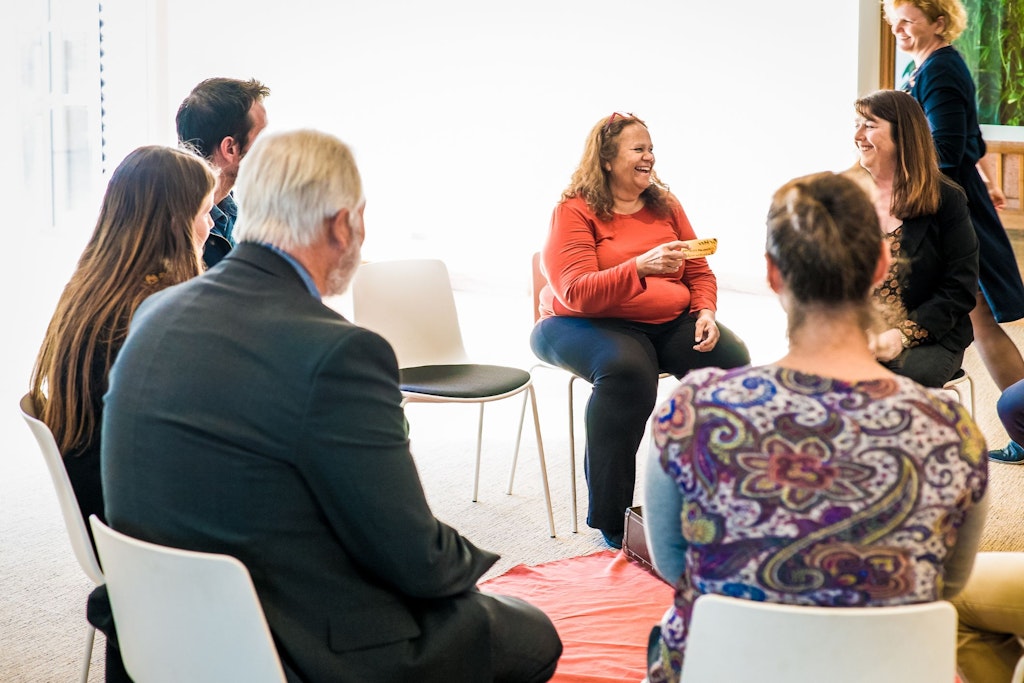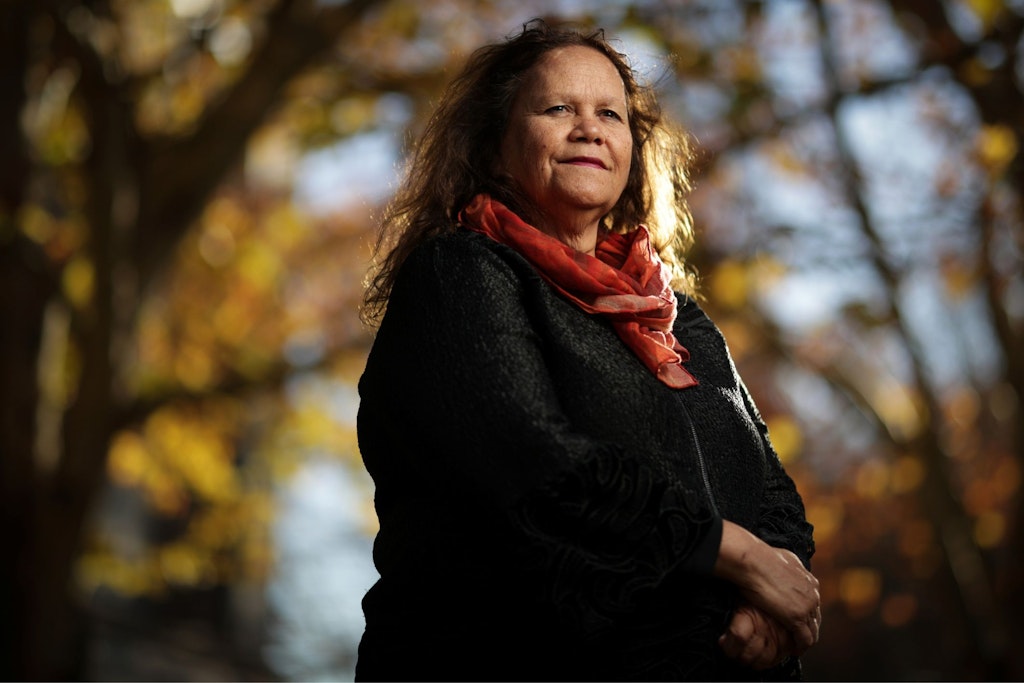Crucial steps for stronger Indigenous cultural awareness in the workplace
Last updated on 5 July 2023

Cultural awareness in the workplace is an essential part of recognising Australia’s First Nations peoples. While it may seem like a small step to talk about and celebrate Indigenous culture, it can make all the difference for you and your Indigenous colleagues.
But the path to becoming an ally can be unclear for those who are less familiar with Indigenous culture. You may worry about saying or doing the wrong thing. There’s no need to worry. Anyone can be an ally and for Aunty Munya Andrews, an Aboriginal Elder, Bardi woman and Co-Director of Evolve Communities, it’s all about taking crucial steps towards learning.
“An Ally is someone who stands up for and supports a marginalised person or group of people. Being an Ally to First Nations people in the workplace means taking steps to ensure First Nations people feel welcome and fully supported,” Aunty Munya explained.
“This may mean taking extra steps to create cultural safety such as understanding and accommodating differences in communication styles, cultural practices, and recognising cultural responsibilities outside of the workplace.”
So before you start your allyship journey, Aunty Munya has given Hello Leaders some helpful tips on greater cultural awareness in the workplace.
Do your own homework
Like any project, it’s best to do your own research first. Countless resources are available to help you better understand Australia’s shared history and the critical issues for First Nations peoples today.
“Before turning to your Indigenous employee or colleague to answer your questions, I would encourage you to do as much as you can to find out information for yourself,” Aunty Munya explained.
“We talk about the 5 Tips for Being an Ally and one of them is ‘Listen and do your homework’ which encourages Allies to educate themselves. There are so many wonderful resources available, from books to documentaries, and our website of course.”
When conducting research, go beyond a surface-level skim. You can always start by looking at the differences between National Reconciliation Week (based on the commemoration of the 1967 referendum and the 1992 High Court Mabo decision) and NAIDOC Week (a modern celebration of the history, culture and achievements of First Nations peoples). Or you could research the importance of Acknowledgement of Country.
But your next step can be a deep dive past history into the importance of Indigenous culture today, its diverse features and current issues impacting all of Australia (such as the Voice to Parliament).

Don’t place the cultural load on your Indigenous employees
When you’re planning an event, your first instinct might be to ask an Indigenous colleague or employee for help. Now, there’s nothing wrong with that if you have a strong relationship and you know they’re keen to be involved.
But as Aunty Munya explains, it’s not the job of Indigenous employees to educate you and others about their culture. As their employer – and an ally – you should not place the cultural load on their shoulders. Think of it like a birthday; it’s nice to be involved in planning, but often the best celebration is when friends and family put in the effort to celebrate your achievements.
Employers also need to recognise the individuality of their employees. Cultural groups are filled with unique individuals; some employees may be willing to help and share their culture while others prefer not to.
“The Indigenous community is as diverse as any other, just because your Aboriginal colleague feels a certain way doesn’t mean all Aboriginal and Torres Strait Islander people feel that same way. So I would say, do your homework first, and then check in to make sure you are not making any assumptions,” Aunty Munya said.
“For example, non-Indigenous people often ask if it is OK for them to refer to an Aboriginal Elder as Aunty or Uncle. Now I am very happy for everyone to call me Aunty, I consider it to be a sign of respect – but not all Elders agree. So I would say, ask before addressing someone as Aunty or Uncle.”
Provide cultural awareness training for your staff
One of the most important things an organisation can do – if not the most important – is to create a culturally safe workplace. This includes taking the cultural load off of Indigenous employees and providing a safe space where they can receive appropriate support.
Without prior experience, it can be difficult knowing where to start. That’s why company-wide cultural awareness training is an essential step in improving everyone’s understanding of Indigenous culture.
“A good cultural awareness training program will help create an inclusive and inspiring workplace where employees are actively taking steps to embrace diversity and support one another. Not only that, you can learn so much about yourself from these programs, helping you to be a better Ally to yourself and all people!” Aunty Munya explained.
“The beauty of participating in an education program like ours is that it is a safe space to ask any question without the risk of offending, we also share an approach around how to ask questions in a respectful way.”
Organisations such as Evolve Communities provide online courses such as the 7 Steps™ On Demand and in-person workshops, while other providers include Australians Together and Blakworks.